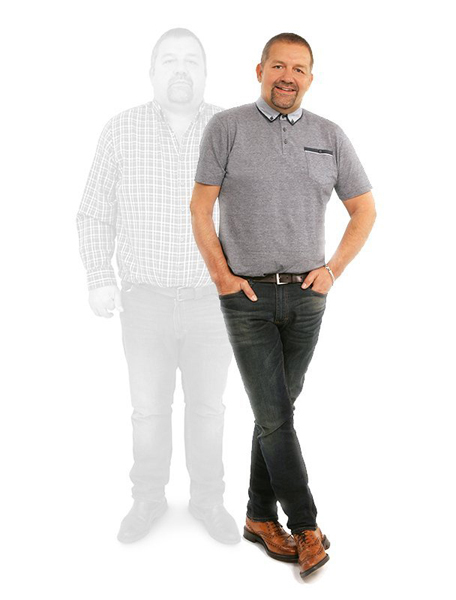The New Year naturally gets us thinking about how we want things to be different. We think about what didn’t go so well in the last year and how we want to have new experiences in the New Year.
The problem is, just wanting things to be different rarely changes anything.
In order to achieve our goals and desires, we have to back them up with concrete action—but not necessarily the actions you would normally take.
For example, practically everyone wants to lose weight in the New Year. Christmas is filled with excess food, sweets and wine, and it seems hard to say “no”. So in the New Year we go on a diet. We probably have a number on the scales we want to reach. But by the beginning of February, or earlier, we find that we’re slipping back into old habits.
What happened? Well, for one thing, we made it about our weight and not about our habits. Think about it: the weight gain didn’t just happen…
Weight gain is a symptom of how we live. We over schedule our time so we’re running here and there and everywhere. We skip meals as a result, or eat on the run, and then we’re exhausted and wind up bingeing at the end of the day. We don’t make exercise a priority because we have too many other things to do. We say “yes” to everyone because we want to be liked, and then we’re resentful and feel unappreciated. So we “reward” ourselves with a food binge.
Can you see how trying to simply eat less isn’t going to work? No wonder 90% of all diets fail…there are too many living habits that make eating less impossible!
Changing what and how much you eat is a good start, but your efforts will be unsustainable without making changes in your life.
Why don’t you focus instead on changing some of your living habits—the ones that create stress and exhaustion and lead to overeating—and see how much happier and healthier you become?
Start by answering a few questions (take some time with this and be honest):
- What obligations do you presently have that you can probably delegate to someone else?
- What projects are you doing that are actually someone else’s job (like your children’s homework)?
- What groups or organisations do you belong to that you don’t actually enjoy but take up lots of your precious time?
- Which friends drain your energy, I call them ‘Mood Hoovers’ You meet them in a good mood and ninety seconds later you are losing the will to live?
- What activities are you doing simply because you want to be liked or praised?
- Whose life and affairs are you trying to control?
- Do you see that you are in the habit of doing things that aren’t really necessary? Can you see how they are creating stress and frustration for you?
Stress is the #1 cause of overeating, drinking, drug use and other compulsions. If you start making changes that can diminish your stress, you will have an easier time sidestepping negative habits.
A “New You” happens when you say, “Yes” to self-care. When you make decisions that support your wellbeing—physically, mentally and emotionally—then making healthy choices like exercise, eating right and not drinking becomes easy.
The problem is, just wanting things to be different rarely changes anything.
In order to achieve our goals and desires, we have to back them up with concrete action—but not necessarily the actions you would normally take.
For example, practically everyone wants to lose weight in the New Year. Christmas is filled with excess food, sweets and wine, and it seems hard to say “no”. So in the New Year we go on a diet. We probably have a number on the scales we want to reach. But by the beginning of February, or earlier, we find that we’re slipping back into old habits.
What happened? Well, for one thing, we made it about our weight and not about our habits. Think about it: the weight gain didn’t just happen…
Weight gain is a symptom of how we live. We over schedule our time so we’re running here and there and everywhere. We skip meals as a result, or eat on the run, and then we’re exhausted and wind up bingeing at the end of the day. We don’t make exercise a priority because we have too many other things to do. We say “yes” to everyone because we want to be liked, and then we’re resentful and feel unappreciated. So we “reward” ourselves with a food binge.
Can you see how trying to simply eat less isn’t going to work? No wonder 90% of all diets fail…there are too many living habits that make eating less impossible!
Changing what and how much you eat is a good start, but your efforts will be unsustainable without making changes in your life.
Why don’t you focus instead on changing some of your living habits—the ones that create stress and exhaustion and lead to overeating—and see how much happier and healthier you become?
Start by answering a few questions (take some time with this and be honest):
- What obligations do you presently have that you can probably delegate to someone else?
- What projects are you doing that are actually someone else’s job (like your children’s homework)?
- What groups or organisations do you belong to that you don’t actually enjoy but take up lots of your precious time?
- Which friends drain your energy, I call them ‘Mood Hoovers’ You meet them in a good mood and ninety seconds later you are losing the will to live?
- What activities are you doing simply because you want to be liked or praised?
- Whose life and affairs are you trying to control?
- Do you see that you are in the habit of doing things that aren’t really necessary? Can you see how they are creating stress and frustration for you?
Stress is the #1 cause of overeating, drinking, drug use and other compulsions. If you start making changes that can diminish your stress, you will have an easier time sidestepping negative habits.
A “New You” happens when you say, “Yes” to self-care. When you make decisions that support your wellbeing—physically, mentally and emotionally—then making healthy choices like exercise, eating right and not drinking becomes easy.


